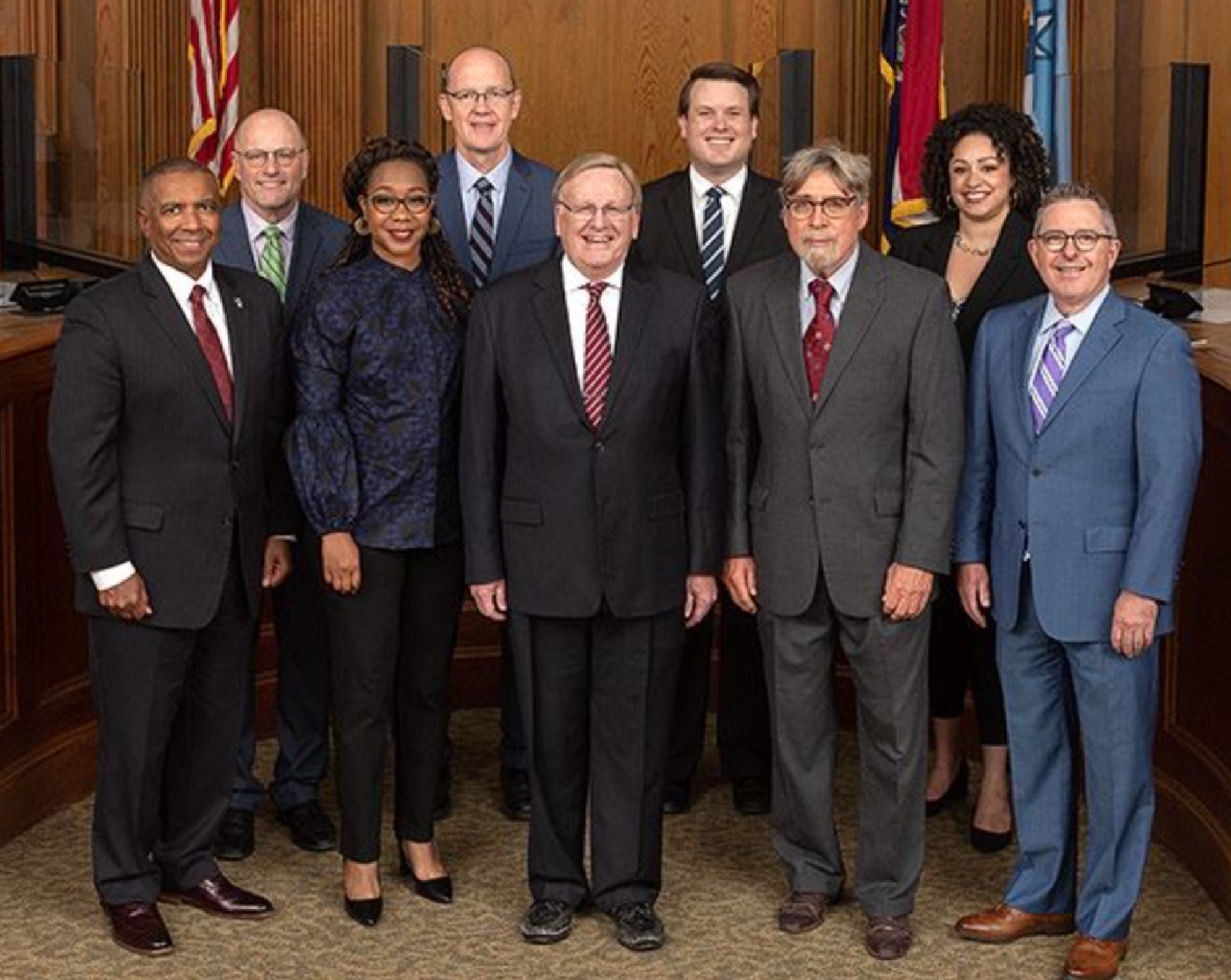Government officials punted on an effort to loosen up language in the city charter meant to prevent conflicts of interest for people in public office and their outside business ventures.
That means Springfield voters have one less item to vote on in April, and one more long-term consideration about the future of city government.
Eleventh-hour talks broke down at a special meeting Jan. 17 to revise the ballot language for Question 4, a proposed change to the Springfield City Charter that would spell out conflict of interest policies for elected officials, appointed officials, city employees and volunteers who serve on boards and commissions.
The Springfield City Council voted to send a proposal to amend the city charter’s code of ethics to the City Council Finance and Administration Committee for additional review and rewriting. That means any votes on Springfield’s city government ethics policies won’t happen until at least August, or maybe in November.
“There’s nothing magic about April,” Springfield Mayor Ken McClure said. “We could go, say in August or November, but I do think we have to work this out, because it’s causing problems. It’s causing a lot of problems, and I don’t think that’s fair to the city, it’s not fair to our employees, and it’s really not fair to council because we have to police ourselves.”
Losing a career over $1

State law allows an officeholder or employee with at least a 10 percent stake in a company that does business with taxing entities to do $5,000 worth of business with that taxing entity per year without running afoul of conflict laws. It also spells out that such contracts for business with public entities would be subject to open bidding and vetting.
Springfield’s existing policy bars any employee or officeholder, or their spouse from holding a financial interest in city business. On its face, it seems like a cut and dried concept of ethics. In the wording of the charter and in practice, however, city officials say the policy needs an update.
“Financial interest means any interest which shall yield, directly or indirectly, a monetary or other material benefit to a board member,” a line of the city charter reads. What was Question 4 would eliminate the terms “direct’’ and “indirect” in the ethics policy in relation to finances, and replace them with “interests in violations of the laws or the constitution of the state of Missouri or an ordinance of the city of Springfield,”
“You can lose a 30-year career on one dollar by not really understanding the impact,” City Manager Jason Gage said. “If it only takes a dollar, that’s very aggressive.”
As the policy is written, an elected official or employee who benefits, directly or indirectly, from a city government contract, can face one consequence: termination of employment or office, plus termination of the contract.
“‘Direct’ is pretty clear, ‘indirect’ is not defined,” McClure said.
“We have 2,000 employees scattered all over the community in different shifts and different departments,” Gage said. “This is very difficult to understand, so as a city manager, as I apply this to our employees, the difficulty is it wouldn’t be a surprise at all to find that a child or a spouse did something for some department.”
As the proposal was written, the city manager could judge the financial impact of a deal involving a conflict of interest, and work to determine whether or not the conflict was intentional or unintentional. Currently, Gage said the city manager has no mechanism of review to weigh one conflict of interest’s severity over another, or bad intent versus no intent.
Real life example on City Council

City Council Andrew Lear had a run-in with the ethics policy in the charter moments before his time on the City Council officially began. While he was spared removal from office, Lear believes unjust terminations have occurred.
“What we have is proven to be unworkable,” Lear said. “We harmed people because of it.”
Hours before he was to attend his first meeting as a newly-elected city councilman, Lear almost had to resign because his wife’s company did business with the Springfield-Greene County Health Department. He was made aware of the conflict of interest, and he and his wife acted to stop it immediately.
“I almost lost my seat within hours of being seated,” Lear said.
Lear was unhappy with the decision to refer the matter to a committee. He hoped to place a ballot measure in April. Lear is also due to complete his term on the City Council this spring, and is not running for reelection.
“I think we ought to deal with it,” Lear said. “I think a new council is going to come in not having a history of all of the problems we’ve dealt with, and now being looked at to say, ‘What do my own ethics look like?’”
Lear supported the idea of the Springfield City Charter using the ethics policy found in state law.
“To me, going to the state statute makes a lot of sense,” Lear said. “It’s defensible, it’s workable, other cities have done it. We all know, it’s been litigated.”
The challenge, Lear said, is to make voters aware of why the city of Springfield should refer to state law in its charter. Councilman Craig Hosmer disagreed.
“It just seems to me to put a state statute that — these statutes have been changed five times since they were enacted, most recently 2014,” Hosmer said. “Your charter is supposed to be something like our U.S. Constitution or the Missouri Constitution, it’s something that’s a little bit more static than a state statute.”
Intent, lack of intent, direct and indirect
Councilman Mike Schilling, who is also not running for reelection, suggested eliminating the exception with the $5,000 cap altogether.
“That’s pretty hardcore, maybe,” Schilling said.
Schilling was also critical of the proposed ballot language for Question 4, which he didn’t believe a lay-voter would understand, especially if they hadn’t read the state laws on ethics and conflicts of interests for state government employees. It was too much boiled in 46 words. Gage said the brevity was by design.
“Part of the intent is to keep the question as short and concise and as readable as possible,” Gage said.
Gage said voters can be confused by legalese that is tailored to one city, and are sometimes more likely to understand language found in state laws that have been standing for years.
“Our thought was your odds are better of folks supporting the change that you’re asking for if they can wrap their arms around a state law versus a custom change, and that may not be correct, but that’s sort of where we came from in trying to find something that folks could understand,” Gage said.
Ultimately, one word found in the charter is the problem, according to the mayor.
“The ‘indirect’ reference does not work for city council members or city employees, so how best do we deal with that?” McClure asked. “I am fine with what’s proposed; I recognize the other discussions, so I’m not wedded to that. I do want to get, eventually, some clarity of at least the ‘indirect’ reference, because that is very problematic and we’ve seen it.”
Gage didn’t feel as though there was enough time to debate the language of the charter change and the ballot question in order to get Question 4 on ballots for the April 2023 election.
“This is such an important item and part of your charter, I think it’s important that whatever question goes out, there is strong consensus behind it,” Gage said to the City Council members. “I think it’s important, because if you’re not supportive of it, why would you expect the public to be?”

